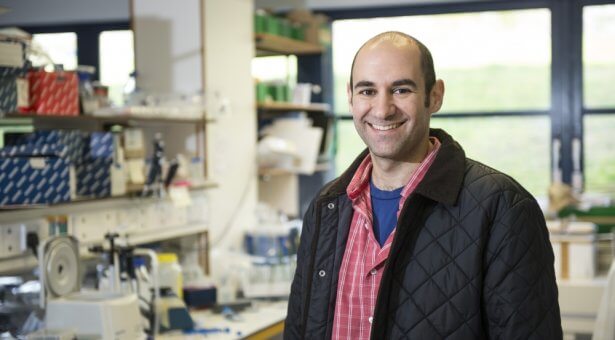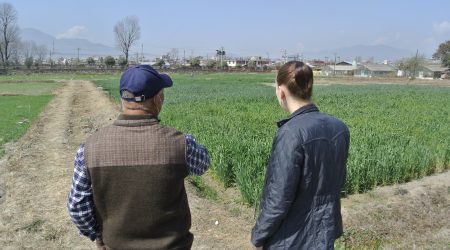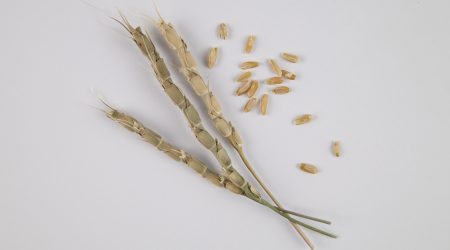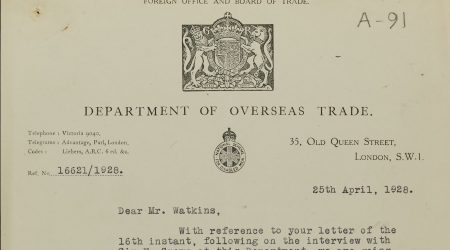Pioneering work in wheat breeding programmes hailed in BBSRC awards

John Innes Centre scientist Dr Cristobal Uauy has received national recognition for his pioneering work in global wheat breeding programmes.
Dr Uauy, a Project Leader in Crop Genetics at the Norwich Research Park-based centre, was a finalist in BBSRC ‘Innovator of the Year’ Award 2017.
The annual award celebrates individuals and small teams who have harnessed the potential of their research to address “real world challenges.”
Dr Uauy was nominated in the social impact category – recognising his success in using his research to create a “positive impact on society.” The category was won by Professor Juliet Osborne of Exeter University.
John Innes Centre Director Professor Dale Sanders said: “It’s good to hear that Cristobal has been recognised for his innovative work. He places impact at the heart of his personal research and recognizes that his fundamental research has the potential to benefit both industry and the public.”
Dr Uauy’s ground-breaking work at the John Innes Centre is part of a wider programme of research, Designing Future Wheat. His work involves sharing technologies for wheat breeders across the world including Punjab, India, and sub-Saharan Africa where he has set up a Kenya-based training hub for wheat breeders.
Dr Uauy, working in partnership with colleagues at the Earlham Institute, The Sainsbury Laboratory and the European Bioinformatics Institute, in April reported in carrying out the most accurate and complete DNA sequence analyses of the wheat genome to date.
Wheat is one of the most important global crops, providing more than 20% of global calories and protein.
Dr Uauy’s work at the John Innes Centre involves employing modern molecular genetic techniques to investigate wheat productivity traits such as grain size, nutritional quality and nutrient remobilisation. This helps to identify genes which can be incorporated into global wheat breeding programmes.
He has led projects with breeders and colleagues to identify priority wheat cultivars for breeding purposes and he developed sequence data for four UK wheat cultivars.
The BBSRC Innovator of the Year award recognises innovative translation of this work across the globe: firstly the development of technology to accelerate plant breeding and secondly by facilitating access to these technologies.
Dr Uauy recognised a major limitation for translating his research into new wheat varieties: breeders do not have the specialist bioinformatics training required to utilise the latest discoveries. To overcome this hurdle he introduced practical training resources for breeders and developed tools to improve the accessibility of important data and methods.
One of these open-access tools, called PolyMarker, takes information from complex data sets and allows the identification of practical markers that breeders can use in marker-assisted breeding. This includes markers for some of the most important genes used by industry.
This research and Dr Uauy’s wider translation of his work will provide benefits to both consumers and industry by enabling plant breeders to create new higher yielding, resilient wheat varieties faster than before.
Jacob Lage, Head of Wheat Breeding at KWS, a world leading plant breeding company, said: “Cristobal has from the beginning practised an “open door” policy. We applaud his understanding of a public good and believe this approach will lead to tremendous impact for society as a whole.”



